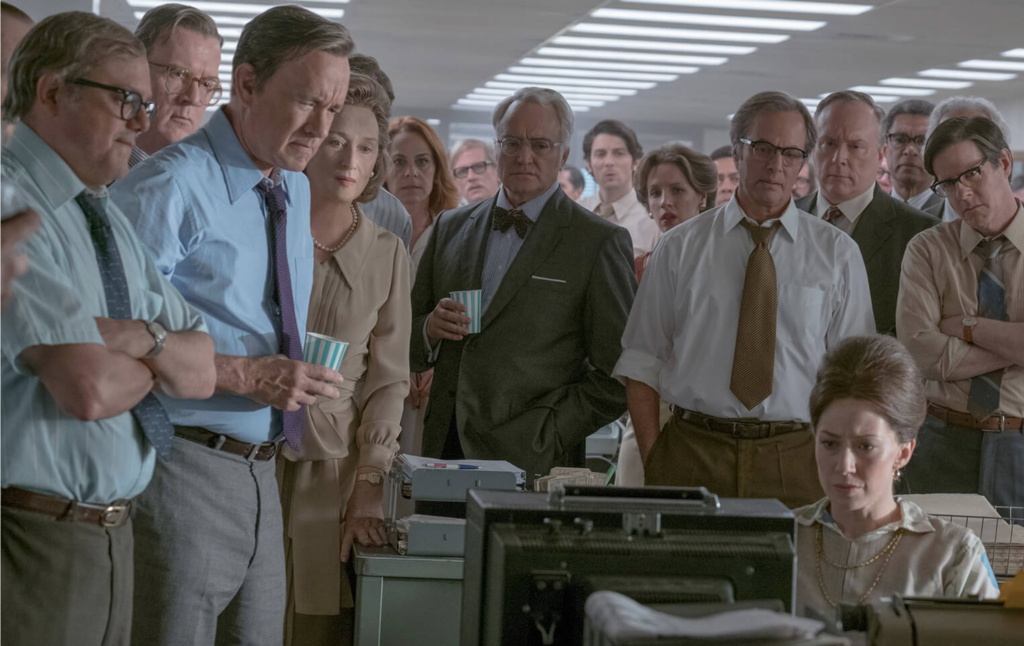The Post has a way of lulling you into nostalgia. Stylistically, Mr. Spielberg employs his most traditional sensibilities. This is not a flashy movie (which we know he is certainly capable of). And I think there’s a reason for this. The subject of the movie is, after all, the Washington Post’s coverage of the leaked Pentagon Papers in 1971. Back then, The Post was not a household national name in news. It was a family-owned local newspaper. So the nostalgic tone is twofold. On one hand, you have the reminiscence of mid 20th century bourgeois society, as epitomized by Katharine Graham (Meryl Streep), who owns The Post. And on the other, you have the newspaper itself, which carries its own nostalgic weight. There are delightful scenes of the mechanics of early 1970’s print technology (with letter types organized on a plate and dipped in ink, and a massive rumbling printing press churning out fresh, hot newspaper sheets).
We view newspapers such as the Washington Post and New York Times as revered institutions. Even though they’ve now branched out to the digital platform (and quite well, I might add), there’s something very traditional about daily newspapers. As The Post successfully displays, the press is the bedrock of American democracy. It’s what keeps the balance of power in check. I think Spielberg wanted to keep the movie on point – on message – instead of worrying so much about stylistic flare. And it certainly stayed on point.
The pacing is a bit slow at the beginning. But by the end, I think that deliberate pacing benefits the film’s thematic impact. Instead of rushing too quickly into the juicy details of one of the biggest and most important moments in American newspaper history, Spielberg first guides us through the characters that make up this 1971 landscape. Specifically Mrs. Graham, who is at the precipice of changing the trajectory of her family’s newspaper forever. The future of her family legacy is in her hands, and the weight of that responsibility is heavy. And part of that burden involves the pressure that her chief editor, Ben Bradlee (Tom Hanks), places on her. He’s determined to push the paper to heights it has never seen as a local paper. And the risks he’s willing to take are often more difficult on Graham than they are on him. This dynamic is the core of the film’s tension. We already know that the Washington Post becomes a big, successful newspaper (nearly on pace with rival New York Times). So the film needed to have some other mystery – some other way to keep the audience on its toes. It’s the stroke of a master filmmaker, even if the end result is often a bit muted. Without that early exposition work, we can’t fully appreciate the risks that these people took to keep the American public informed, and to keep those in power from abusing their power.
Obviously there are parallels between the events of this film and our current political situation. I won’t get into those details here. But I wonder how this movie will age. It feels more relevant today because of what’s going on in our country. But in a few years, will this movie still pack a relevant punch? Or will it just be a good movie about a really interesting moment in American history? Time will tell.
4 stars out of 5
